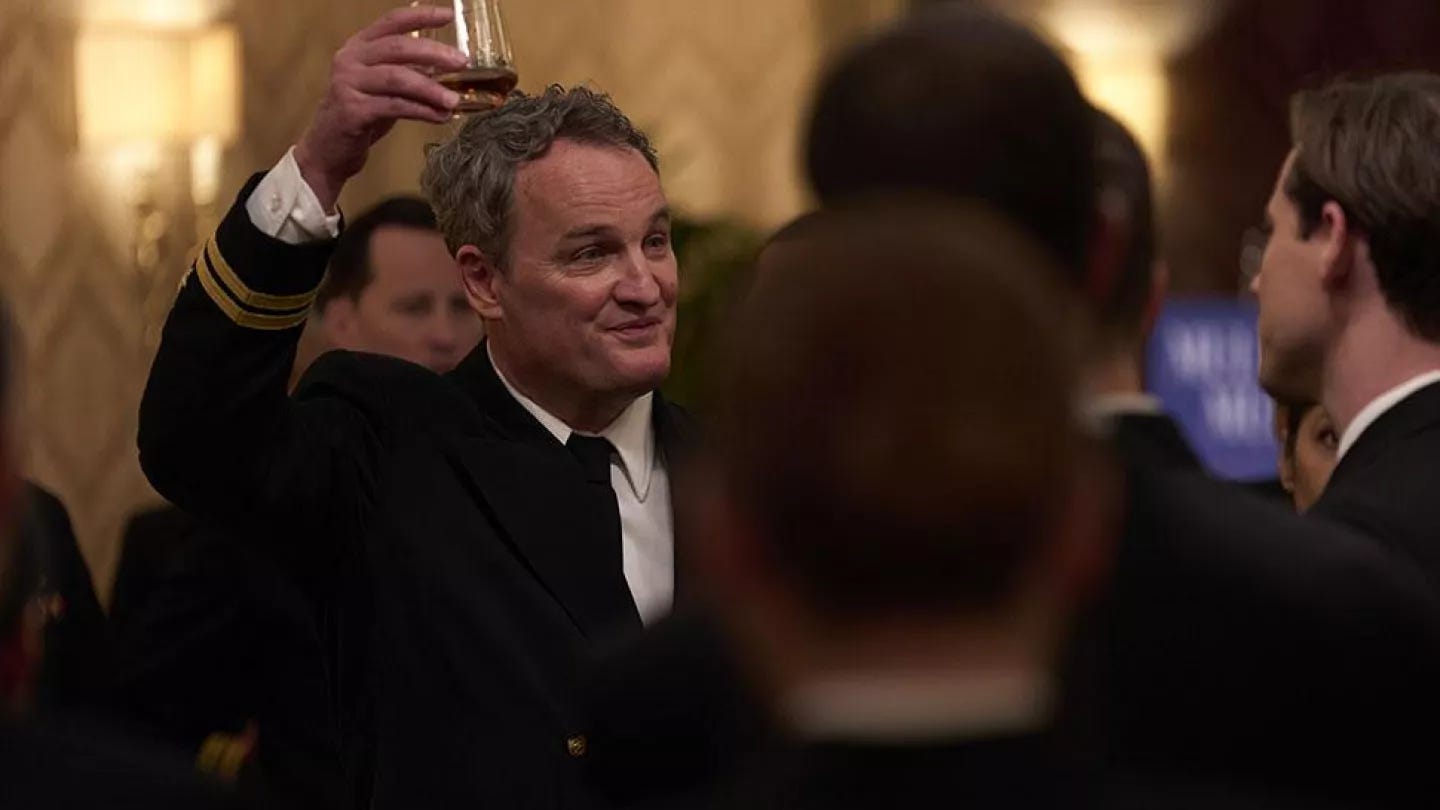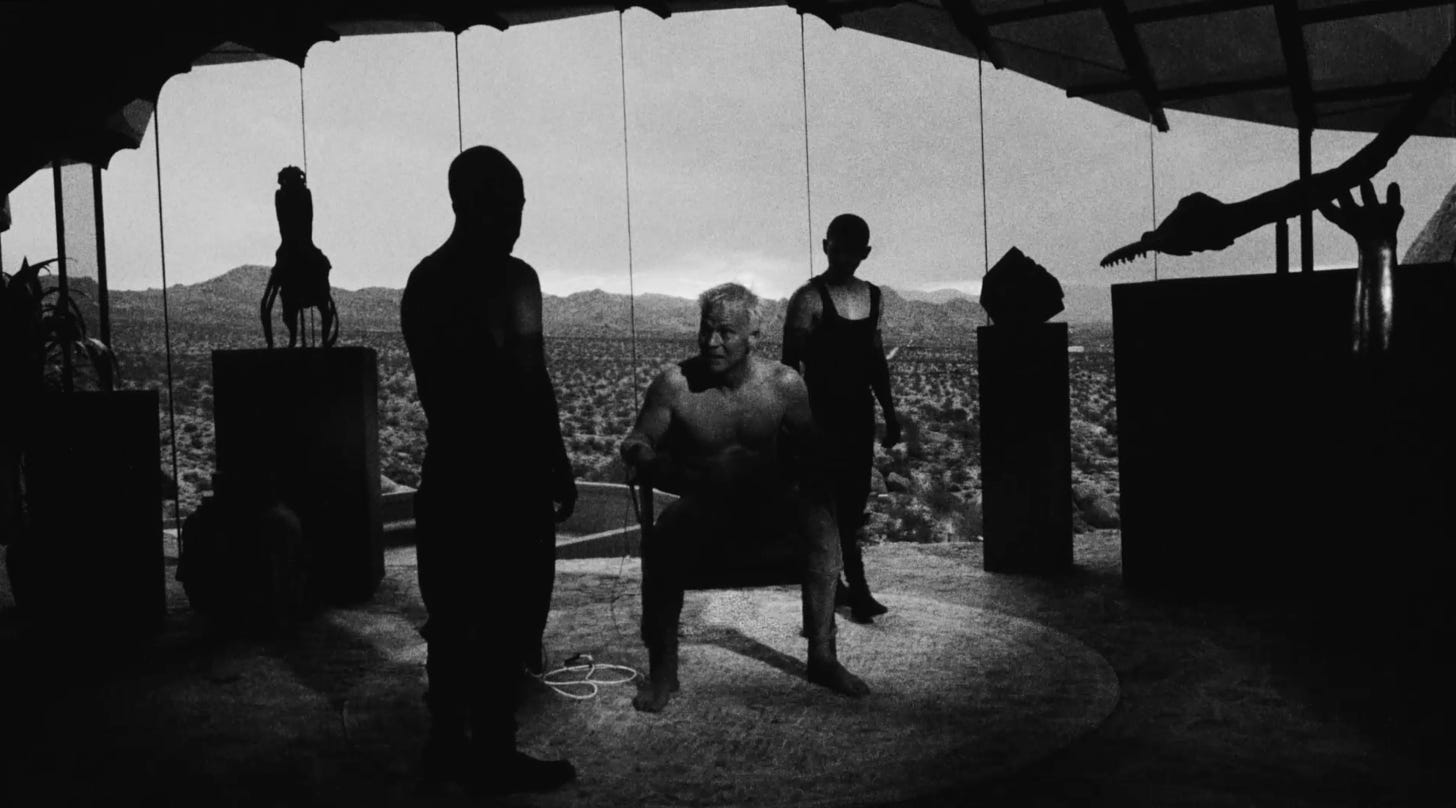In Review: 'The Mission,' 'The Caine Mutiny Court-Martial,' 'Divinity'
This week's (non-Taylor Swift) offerings include a complex documentary about missionary work gone awry, William Friedkin's swan song, and a midnight-ready sci-fi oddity
The Mission
Dir. Amanda McBaine, Jesse Moss
100 min.
The death of 26-year-old American missionary John Allen Chau in November 2018 drew quite a lot of unfriendly commentary (and memes) related to the naivety and arrogance of his mission to bring the Gospel to one of the world’s most isolated indigenous peoples. With an estimated population of about 200, the inhabitants of North Sentinel Island in the Bay of Bengal, called the Sentinelese, had shown hostility toward foreigners before and the Indian government keeps the island protected through an exclusionary zone. For Chau to slip through this zone, as he did with the help of Christian fishermen, was an illegal act, and while it could be argued (not by me, mind) that the Sentinelese might benefit from knowing Jesus Christ, they certainly would not benefit from whatever pathogens Chau might have carried with him.
It would be easy enough to make a documentary condemning Chau as a fool at best and a destructive narcissist at worst, and it would be even easier and more insidious to understand him as a martyr for the evangelical cause. But The Mission, a complex and rigorously considered documentary from directors Amanda McBaine and Jesse Moss, takes a step or two back and considers Chau’s case in a much broader and richer context. Where McBaine and Moss’ previous doc, Boys State, immersed itself in the machismo-warmed incubator of American politics, this new film is a more cool-headed attempt to understand Chau and the missionary tradition that he both represented and sought to redefine on his own iconoclastic terms. His failure opens up all sorts of ethical and philosophical questions that outrage alone can’t answer.
As a lone adventurer courting (and receiving) death in an obscure corner of the natural world, Chau recalls self-styled bear “protector” Timothy Treadwell of Werner Herzog’s Grizzly Man and Chris McCandless, the nomadic subject of Jon Krakauer’s Into the Wild, which Sean Penn adapted to the screen. And like those men, Chau obsessively documented his journey for as long as he stayed alive, and his diary entries, along with a mournful reflection written by his father after his death, are threaded into the film through voiceover and animated sequences. McBaine and Moss trace his mission to North Sentinel Island as a seeming inevitability, baked into a childhood where his Christian upbringing meshed with a passion for nature and a persistent fantasy that he could thrive in the wild like a storybook hero. While the film doesn’t question the sincerity of his desire to share the Gospel with the unenlightened, it does raise the likelihood that a Messiah complex was also the engine of his demise.
The Mission slowly retraces his steps to the island, including a missionary “boot camp” where he trained through role-playing exercises, with evangelicals acting as natives. (Accounts of Chau’s efforts to communicate with the Sentinelese reveal the outrageous futility of his preparation.) But much of the film’s true value comes from the perspective offered by former missionaries with hard-earned wisdom from their own experiences with indigenous people: Adam Goodheart, a professor and historian who published a book (The Last Island: Discovery, Defiance, and the Most Elusive Tribe on Earth) about the various failed efforts to reach the Sentinelese, and Daniel Everett, who spent two decades living among the Pariahã people of the Amazon basin, only to abandon his faith entirely.
The interviews with Goodheart and Everett are so strong that separate documentaries could have been spun out about either one of them, but they’re the right voices to reflect on what happened to Chau, because his mistakes—and the mistakes of the missionary cause more broadly—are so personal to them. Their thoughtful perspective may be more than Chau deserves, given the arrogance of entries in his journal like, “Lord, is this island Satan’s last stronghold?”. But The Mission is sparking a conversation that’s larger and much older than Chau, one about protecting the few untouched indigenous peoples remaining on Earth and rethinking our ideas about what “civilization” really means. — Scott Tobias (4/5)
The Mission opens in limited release tomorrow.
The Caine Mutiny Court-Martial
Dir. William Friedkin
109 min.
With the most famous one-two punch of his career, The French Connection and The Exorcist, William Friedkin established a reputation as a maximalist, someone willing to marshal all the effects of the medium to the highest possible impact. But really, clarity and concision were more defining traits, as Friedkin worked to draw the viewer into the most essential, urgent aspects of a scene or sequence. From the famed choreography of his car chases to more intimate exchanges between characters, he sought to achieve a heightened attention and do away with any distracting, extraneous elements.
In that sense, Friedkin’s final film, The Caine Mutiny Court-Martial, is a statement of principles, a no-frills courtroom drama that wastes so little time getting in and out of Herman Wouk’s classic play—adapted from his 1952 novel The Caine Mutiny—that it’s hard not to chuckle a bit over its diamond-cut economy. There’s no build-up. There’s no denouement. It starts in the hallway outside the court where nearly all the action will take place and ends with a toast at a party. Friedkin does not deploy flashbacks or inserts or anything else more “cinematic” that might illustrate what happened on a Naval vessel where a first officer took the radical step of relieving his captain of command. The film has the aesthetic quality of a military proceeding, an austere formality that’s as clean and crisp as starched whites.
That conversation in the hallway when the film opens establishes a crucial tension between a lawyer and his client that sets up the uneasiness to come. Though defense attorney Lieutenant Greenwald (Jason Clarke) has agreed to represent the first officer, Lt. Maryk (Jake Lacy), in his trial for mutiny aboard the U.S.S. Caine, it’s an agonizing assignment. Going after a veteran commander like Captain Queeg (Kiefer Sutherland) is a risk for Greenwald, who could face disciplinary charges himself for being too vigorous in court, but he’s as concerned about Queeg’s reputation as his own, given the man’s distinguished service career. Even though Maryk is the one on trial, it’s ultimately Queeg’s mental health and decision-making lapses that will be under the microscope.
Wouk’s two-act play, the first depicting the prosecution and the second the defense, gets a sustained treatment here that isn’t real time, but has that kind of continuity. The mutiny occurred during a typhoon that put the Caine, a minesweeping ship in the Persian Gulf, at risk of capsizing unless Queeg chose the right course of action. But Greenwald establishes a pattern of paranoid, unstable and abusive behavior from Queeg before the typhoon, drawn from a medical log that Maryk was compiling on the captain. While the prosecutor (Monica Raymund) chips away at Maryk’s intellect and underlines Queeg’s unblemished record, the head judge (Lance Reddick) inserts himself in the proceedings often to ask questions and keep the attorneys in line.
Throughout his career—as early as his 1968 Harold Pinter adaptation The Birthday Party and more recently with a one-two of Tracey Letts provocations, 2006’s Bug and 2011’s Killer Joe—Friedkin has been comfortable bringing plays to the screen, and The Caine Mutiny Court-Martial closely resembles the made-for-TV version of 12 Angry Men he directed in 1997. The courtroom set is bright and evenly lit, and the camera stays mostly in medium shots unless Friedkin comes closer for dramatic impact—but even then, the movement never calls attention to itself. His focus is mostly on the uniformly strong performances, particularly from Clarke as the tormented Greenwald and the late Reddick as a judge of withering authority.
Beyond that, Friedkin simply does right by a play that doesn’t require a great deal of technical finessing. The Caine Mutiny Court-Martial may wind up buried in a filmography much like Robert Altman’s excellent-but-obscure 1998 TV movie version with Eric Bogosian as Greenwald, but Friedkin preserves the ambiguity baked into Wouk’s play. Based on how the trial unfolds in front of our eyes, the final judgment seems fair, but a military court is not the same as a civilian court, and Wouk asks the audience to consider several verdicts at once. The ending leaves you shaken—which was the right way for Friedkin to go out. — Scott Tobias
The Caine Mutiny Court-Martial is currently streaming on Paramount+ and other Showtime platforms.
Divinity
Dir. Eddie Alcazar
88 min.
In the bleak, seemingly post-apocalyptic landscape of Divinity, anyone who wants to live forever needs only to consume the eponymous drug. Hawked relentlessly by Jaxxon Pierce (Stephen Dorff), who inherited the product from his idealistic father Sterling (Scott Bakula), Divinity bestows tremendous health and big, beautiful bodies on those who use it but comes with a catch: the drug renders its consumers sterile. That’s the straightforward sci-fi premise at the heart of Eddie Alcazar’s black-and-white oddity, but it mostly serves a foundation on which the filmmaker can pile a lot of strange ideas—some compelling, many confounding—and arresting visuals. It never really works as a piece of storytelling, but as a bleak, moody and ever-shifting stylistic exercise, it’s like nothing else out there right now.
Said ideas include a pair of alien brothers (Moises Arias and Jason Genao), what appears to be a fertility cult, and an experiment in what happens when Jaxxon is forced to ingest the drug he’s been peddling in massive quantities. (It’s not pretty.) It’s not clear how seriously Divinity, with its broad symbolism and B-movie trappings, is meant to be taken— perhaps very, perhaps not at all. Sometimes that feels like a shortcoming, but it also gives the film a strange, unsettled atmosphere to match its retro cult-film imagery. (If it weren’t for recognizable stars, Divinity could pass as an item found on the dustiest corners of a video store’s “Cult Movies” section next to Eraserhead and The Forbidden Zone.)
The imagery is the real show here. The open sky of the desert contrasts with the shadowy interiors of Jaxxon’s retro futuristic home. A climax mixes anime-inspired visuals with Ray Harryhausen-inspired stop-motion animation. Divinity’s best moments play like a vivid nightmare of a fuzzy dystopia and they’re almost imaginative enough to compensate for a story that never really develops momentum. Still, it’s sure to find an appreciative audience among those seeking an innovative and outré vision that builds a dark future out of elements of the past, so long as they don’t mind a narrative with none of its rough edges sanded down. —Keith Phipps
Divinity opens in New York tomorrow before expanding.











Glad you mentioned the Altman Caine Mutiny Court Martial. It's a good film, well cast and well made. The 1954 film is good too. I'll gladly see another version (and I probably should read the book eventually!)
Well, you sold me on The Mission and have me curious about Divinity. I was going to watch Caine Mutiny anyways but good to know it's good! Glad that a career like Friedkin's won't end on The Devil and Father Amorth.